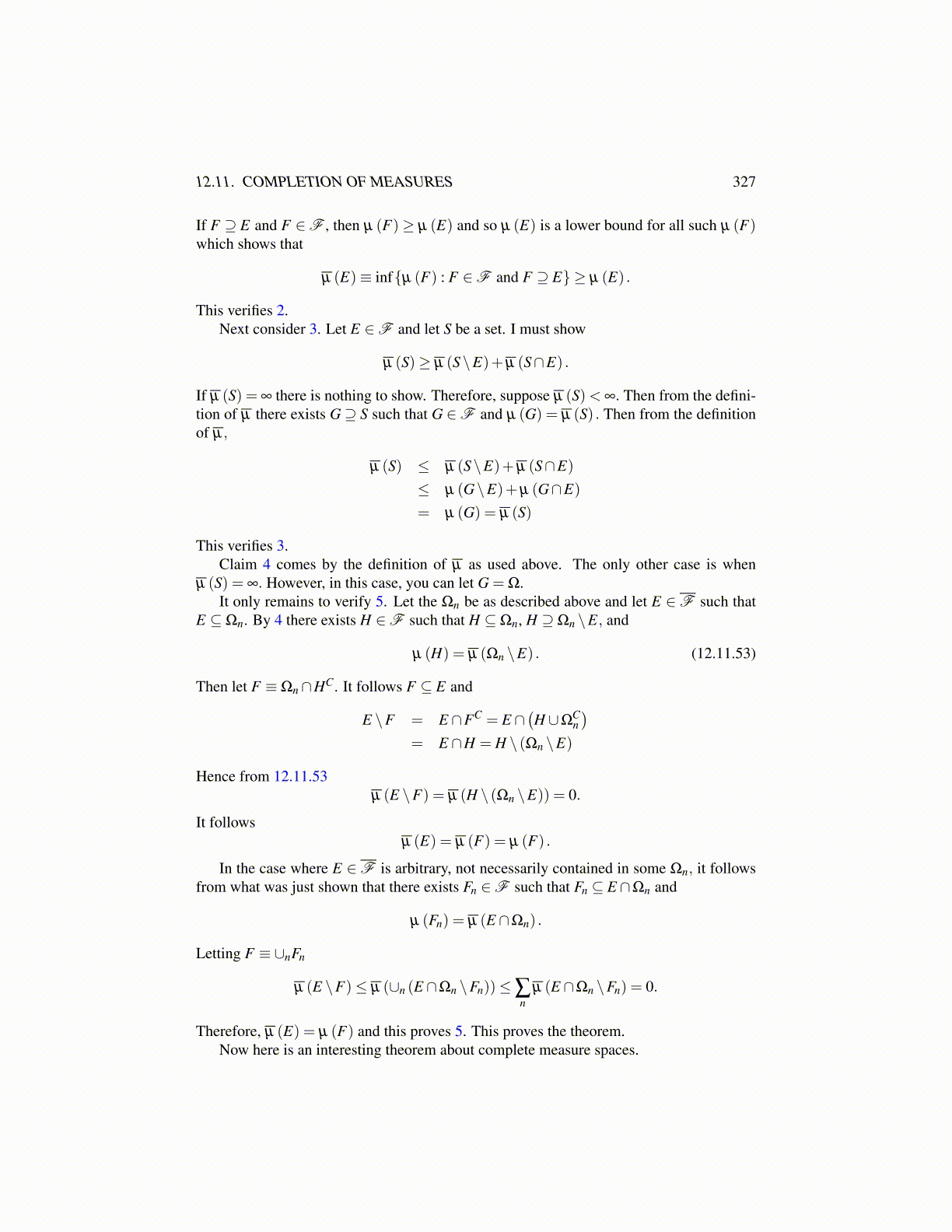
12.11. COMPLETION OF MEASURES 327
If F ⊇ E and F ∈F , then µ (F)≥ µ (E) and so µ (E) is a lower bound for all such µ (F)which shows that
µ (E)≡ inf{µ (F) : F ∈F and F ⊇ E} ≥ µ (E) .
This verifies 2.Next consider 3. Let E ∈F and let S be a set. I must show
µ (S)≥ µ (S\E)+µ (S∩E) .
If µ (S) = ∞ there is nothing to show. Therefore, suppose µ (S)< ∞. Then from the defini-tion of µ there exists G⊇ S such that G ∈F and µ (G) = µ (S) . Then from the definitionof µ,
µ (S) ≤ µ (S\E)+µ (S∩E)
≤ µ (G\E)+µ (G∩E)
= µ (G) = µ (S)
This verifies 3.Claim 4 comes by the definition of µ as used above. The only other case is when
µ (S) = ∞. However, in this case, you can let G = Ω.It only remains to verify 5. Let the Ωn be as described above and let E ∈F such that
E ⊆Ωn. By 4 there exists H ∈F such that H ⊆Ωn, H ⊇Ωn \E, and
µ (H) = µ (Ωn \E) . (12.11.53)
Then let F ≡Ωn∩HC. It follows F ⊆ E and
E \F = E ∩FC = E ∩(H ∪Ω
Cn)
= E ∩H = H \ (Ωn \E)
Hence from 12.11.53µ (E \F) = µ (H \ (Ωn \E)) = 0.
It followsµ (E) = µ (F) = µ (F) .
In the case where E ∈F is arbitrary, not necessarily contained in some Ωn, it followsfrom what was just shown that there exists Fn ∈F such that Fn ⊆ E ∩Ωn and
µ (Fn) = µ (E ∩Ωn) .
Letting F ≡ ∪nFn
µ (E \F)≤ µ (∪n (E ∩Ωn \Fn))≤∑n
µ (E ∩Ωn \Fn) = 0.
Therefore, µ (E) = µ (F) and this proves 5. This proves the theorem.Now here is an interesting theorem about complete measure spaces.